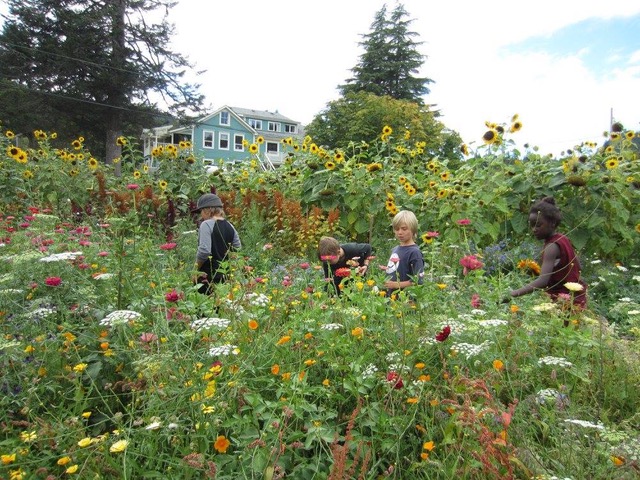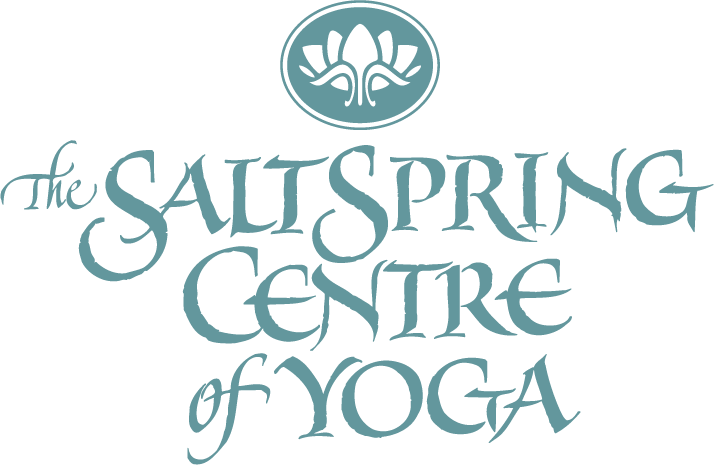Common be our Prayer
Living in harmony with each other
 Common be our prayer
Common be our prayer
Common be our end
Common be our purpose
Common be our deliberations
Common be our desires
Unified be our hearts
United be our intentions
And perfect be the union amongst us
This ancient prayer from the Vedas points us in the direction of peace and harmony.
Although differences between people can create separation, deep down we all want the same thing. Everyone wants to be happy. Where we get stuck is that we have different ways of getting there, and that’s where disagreements arise. What if we could recognize what unifies us rather than what divides us?
I read a story about a woman who was playing with her two grandchildren, a little boy of four and his six year old sister. She had made a tent with a blanket strung over a couple of chairs, and all three of them climbed in with a basket of toys. The 4-year old pulled a red paper heart out of the basket and said, “This is mine!” His 6-year old sister said, “No it’s not! I made it, so it’s mine!” “Yeah, but I found it so it’s mine!” In an inspired moment, their grandmother said, “Looks like we have a dilemma. Do you want to play the solutions game?” Neither of the children knew what the word ‘dilemma’ meant, but they were intrigued by the idea of a game.
The game is simple: Each of the kids gets a turn to propose a solution, with the grandmother orchestrating the turns. The game, however, can end only when they come up with a solution that works for both of them.
Little brother went first: “I found it and I’m going to keep it!” Grandma asked him, “Is that your solution?” YES! “Okay, let’s see if that solution works for your sister.” Turning to big sister, she repeated little brother’s solution and asked, “Does that solution work for you?” NO! Then grandma asked, “Do you have a solution?” Same kind of response: “I should have it because I made it.” Their wise and patient grandma asked, “Is that your solution?” Yes. “Well, let’s see if that works for your brother.” At this point little brother was holding the paper heart in front of him with both hands, ready to tear it in two. Grandma: “Is your solution to tear it into two pieces and give one half to each of you?” Little brother grinned and nodded YES. At this point big sister was also laughing, so grandma asked if that solution worked for her. YES! So simple. I wish it were so simple for adults.
It’s not always so simple for children either; it helps to have a wise guide. A few years ago I brought several puppets to the Centre School’s kindergarten class to help resolve some issues that had arisen. The puppets had problems with each other, so we played the solutions game, with the children proposing solutions. It didn’t take long before they found solutions that worked for the puppets who had the dilemma. Later in the day, the kindergarten teacher overheard children saying to each other, “We have a dilemma. Let’s play the solutions game.”
What is it that keeps you and others apart? What is it you both long for? Chances are you want the same thing. That thing isn’t really a thing; it’s more like what’s most important to you? What, if it were present, would bring you into harmony?
Here are a few guidelines from Babaji to help us navigate the path to unity and harmony:
To find fault with others becomes a habit. But if we are capable of finding our own faults in everyday activities, we can really progress. In fact, what we see in others are our own weaknesses and faults. Everyone becomes everyone else’s mirror but we don’t want to accept our own faults, so we do not use these mirrors to improve ourselves.
Express love and kindness in your words and actions in dealing with others.
Look for good qualities in others rather than looking for their shortcomings.
The flow of energy in the body is blocked when the mind indulges in anger, hatred and selfishness. Keep your mind pure and you will see how easily the energy moves.
Thich Nhat Hanh says, “When you plant lettuce, if it does not grow well you don’t blame the lettuce. You look into the reasons it is not doing well. It may need fertilizer, or more water, or less sun. You never blame the lettuce. Yet if we have problems with our friends or our family, we blame the other person. But if we know how to take care of them they will grow well, like lettuce. Blaming has no positive effect at all, nor does trying to persuade using reason and arguments. That is my experience. No blame, no reasoning, no arguments, just understanding. If you understand, and you show that your understand, you can love, and the situation will change.
Always remember your aim, which is to attain peace (God).
Develop good qualities in your actions and thoughts, such as honesty, compassion, and love.
Be nonviolent.
Cultivate a sympathetic heart, humility in dealings and selflessness in actions. If these are practiced with earnestness and sincerity, then you will win the game of life.
Contributed by Sharada
All text in italics is from writings by Baba Hari Dass
 Sharada Filkow, a student of classical ashtanga yoga since the early 70s, is one of the founding members of the Salt Spring Centre of Yoga, where she has lived for many years, serving as a karma yogi, teacher and mentor.
Sharada Filkow, a student of classical ashtanga yoga since the early 70s, is one of the founding members of the Salt Spring Centre of Yoga, where she has lived for many years, serving as a karma yogi, teacher and mentor.
